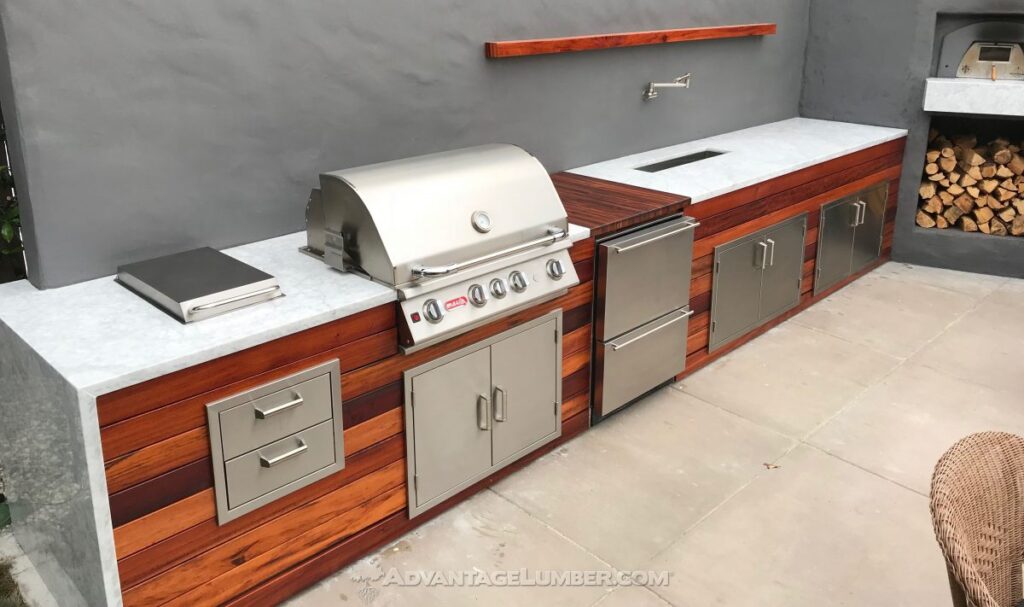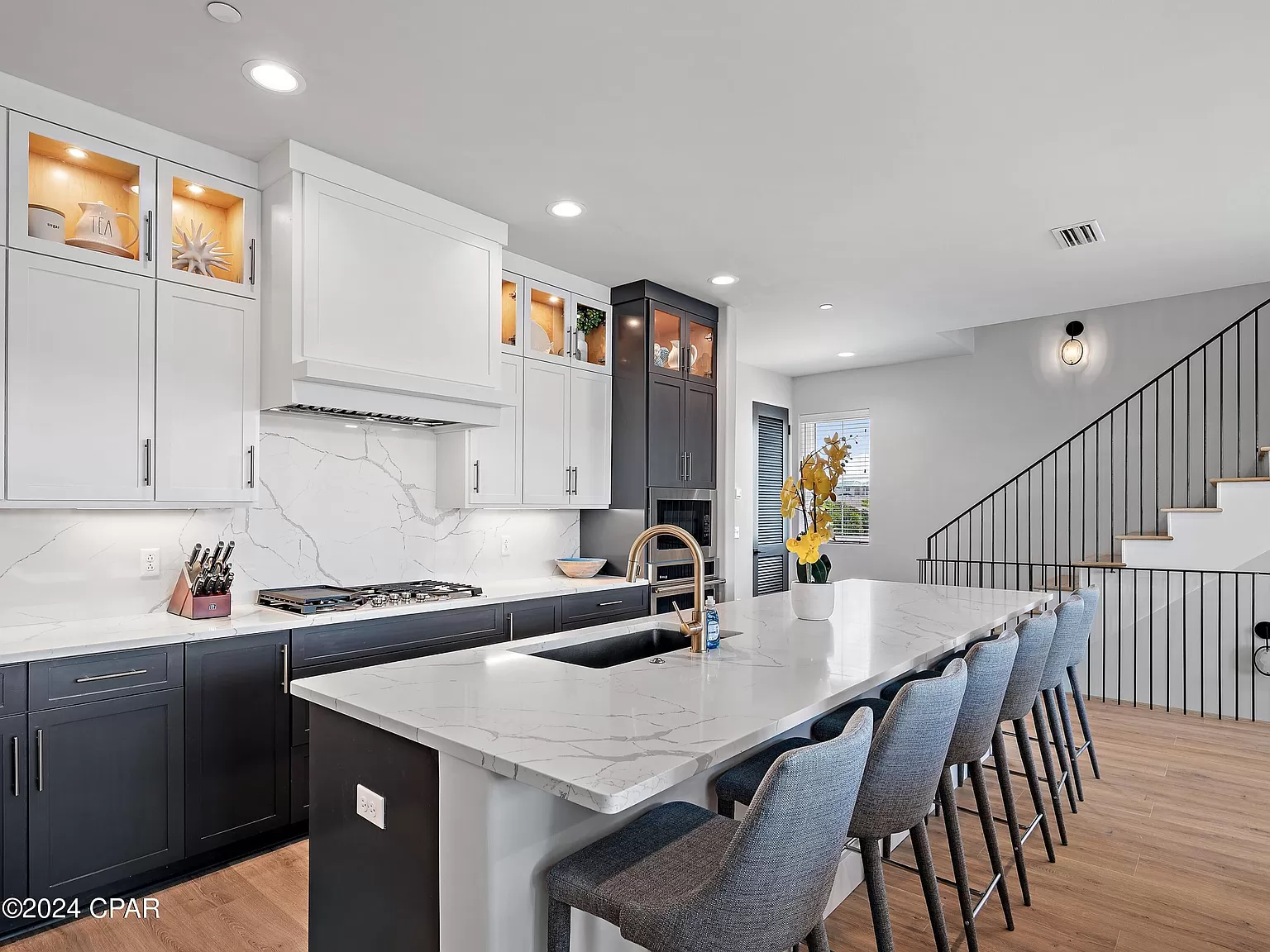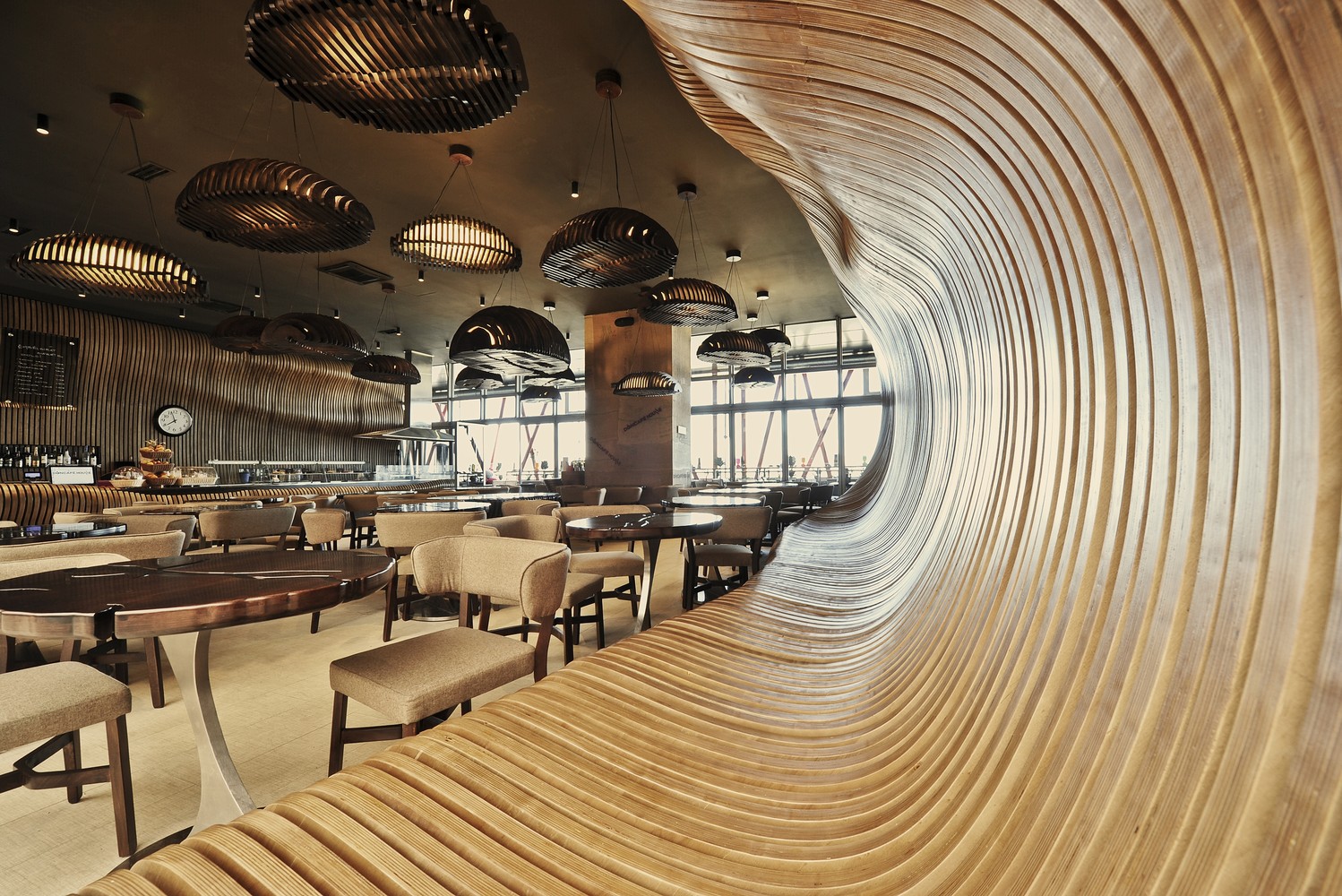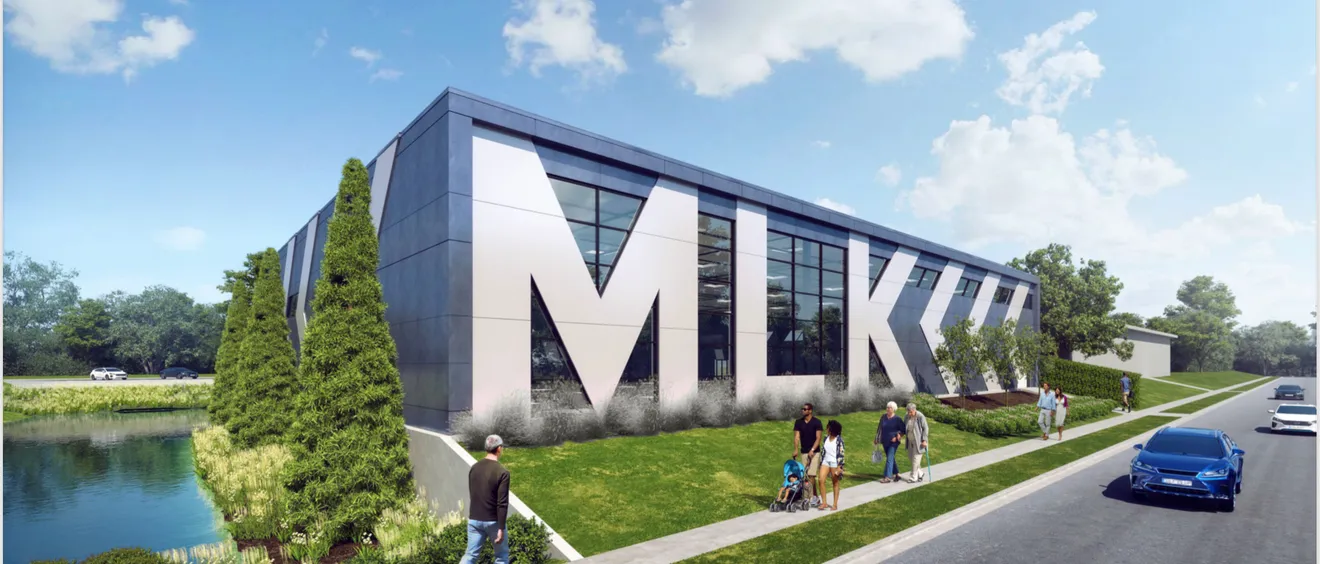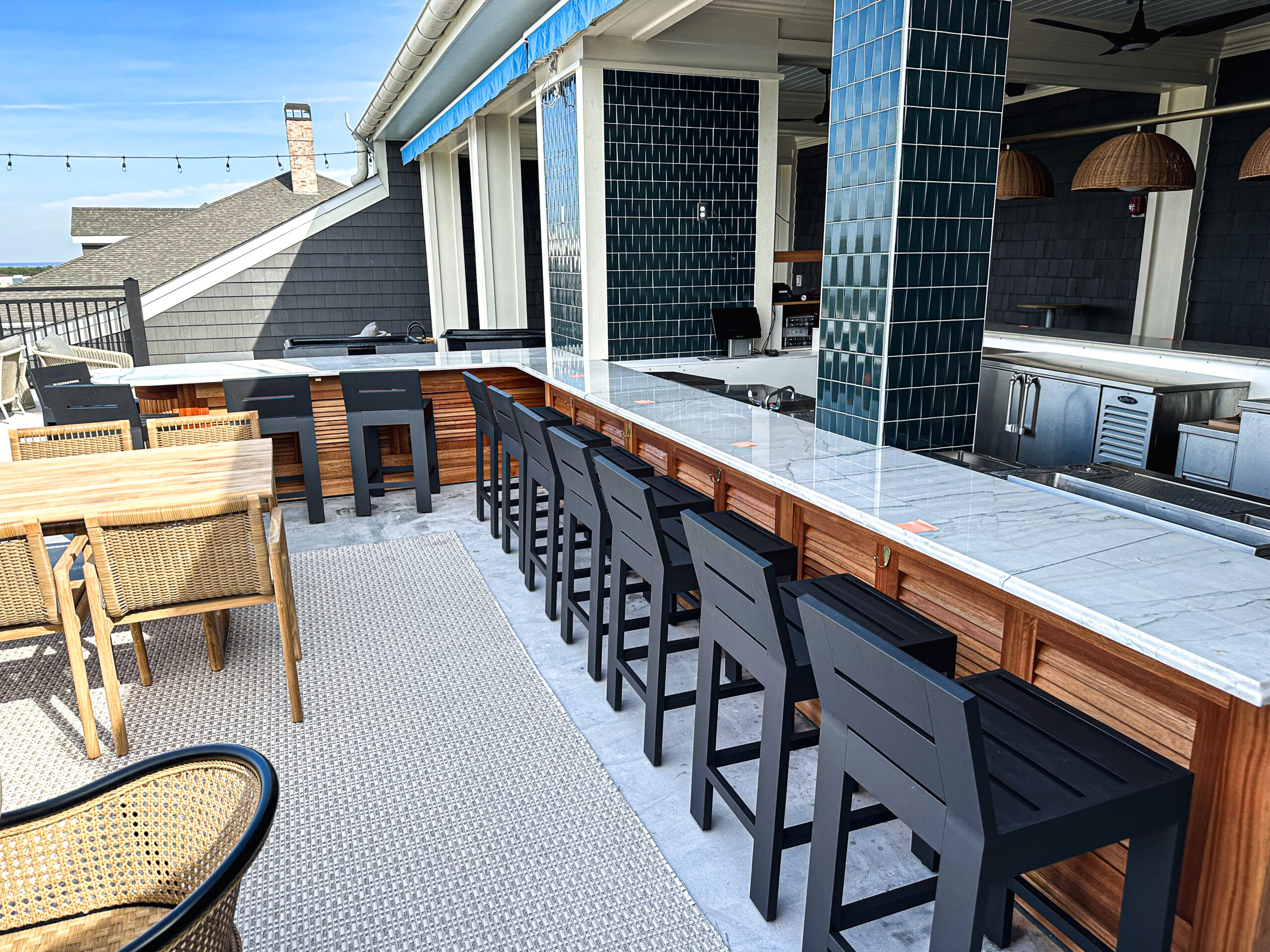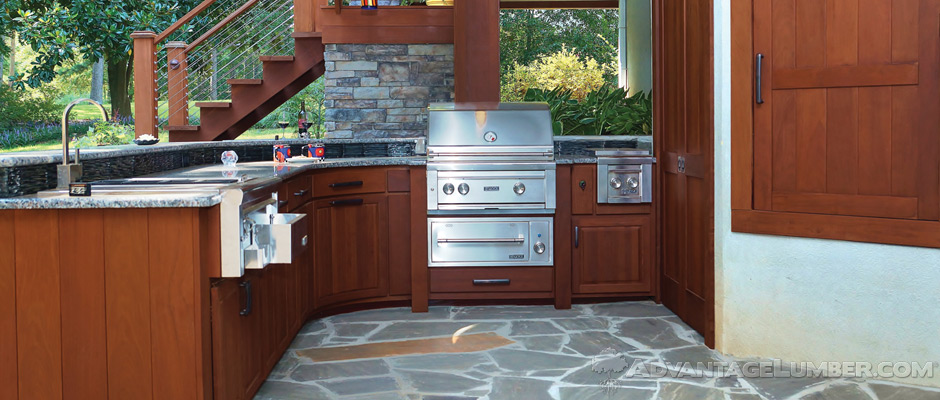
Building an outdoor kitchen is a major investment. You want to make sure you are using materials that are going to hold up to the outdoor environment as well as the abuse of kitchen wear and tear.
You are probably looking at spending thousands of dollars on top of the line stainless steel appliances for your outdoor kitchen.
The last thing you would want is to spend a lot of time and money on an outdoor kitchen and have your grill in your outdoor kitchen rust out after 5 years and force you to redo your outdoor kitchen.
Many homeowners want their appliances to sit in cabinets or an outdoor bar built out of a beautiful long lasting wood.
Woods You Should Not Use for an Outdoor Kitchen
We suggest staying away from softwoods such as pressure treated pine, cedar and redwood.
These softwoods are all susceptible to rot, wood boring insects and are can catch fire quickly. In addition they require yearly maintenance with waterproofing sealers that will peel off.
This will leave you scraping and sanding all the wood and then reapplying the sealer each year. Waterproofing sealers help keep water from penetrating the grain of softwoods which would lead to faster rot and decay.
Additionally your outdoor kitchen will more than likely be placed on a concrete slab foundation. Depending on the design of your outdoor kitchen your cabinets or bar will be sitting on top of the concrete.
Concrete wicks moisture so softwoods sitting on top of concrete will rot faster at the base.
These are just a few reasons why we don’t recommend these softwoods for an outdoor kitchen.
Best Woods for Outdoor Kitchens
There are a few species of wood that we’ve found to be proven to perform incredibly well in outdoor environments such as outdoor kitchens.
These species are Ipe, Cumaru, Tigerwood, Garapa and Massaranduba. They all come from South America and have proven to last up to 75 years or more with very low maintenance.
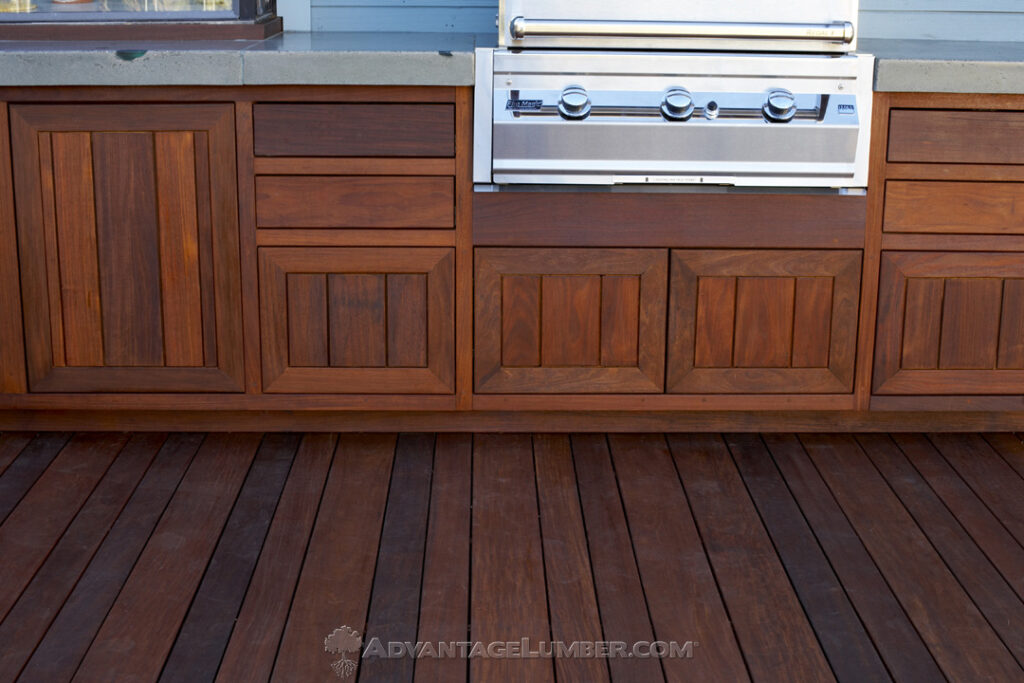
Ipe wood decking is one of the most durable, long lasting decking woods available. It is more durable than teak and is more cost effective as well.
It is also naturally resistant to mold, mildew, rot and decay, wood boring insects can not chew through the wood, It has a Class A rating against flame spread, does not splinter like softwoods and it has proven to last 75+ year on commercial boardwalks like Coney Island boardwalk in New York.
Here’s another outdoor kitchen built with Ipe Wood:
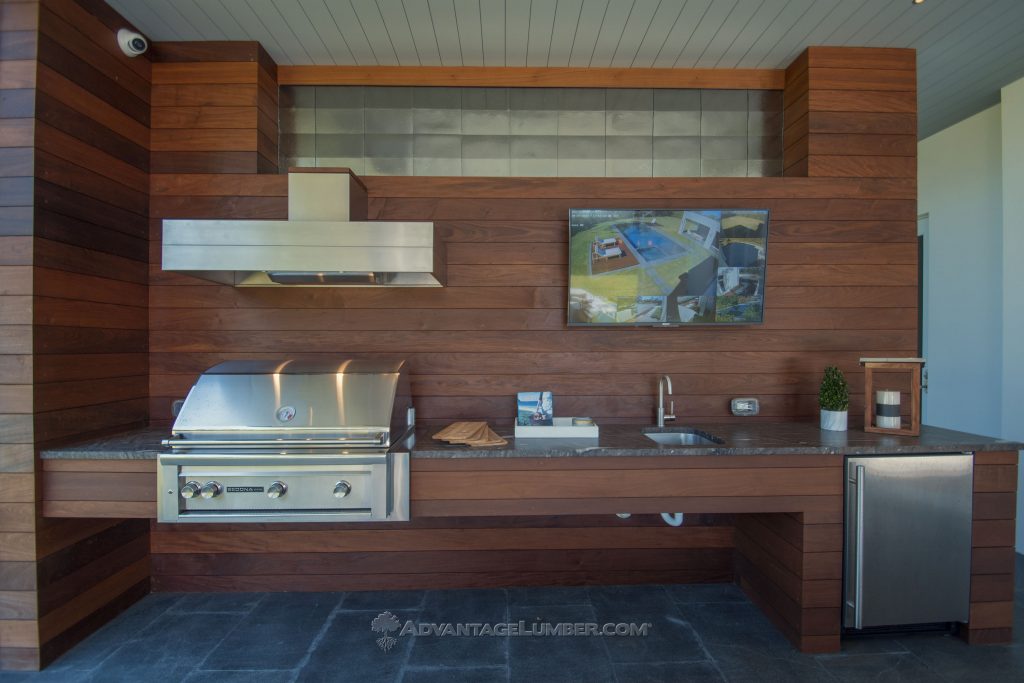
Cumaru is almost identical to Ipe it’s just got a little more color variation which ranges from golden brown to a reddish brown. Ipe is more consistent in color which is a chocolate brown.
Many people are drawn to Cumaru because it’s typically 30% cheaper and also a very beautiful and durable wood. It has all the similar properties like Class A rating against flame spread which makes it an excellent wood for outdoor kitchens.
While we don’t have pictures of an outdoor kitchen built with Cumaru wood most of the jobs we supply are used to build decks.
Just like Ipe wood is most commonly used to build decks both of these woods are great for a wide array of outdoor projects.
Here’s a picture of a deck built with Cumaru:
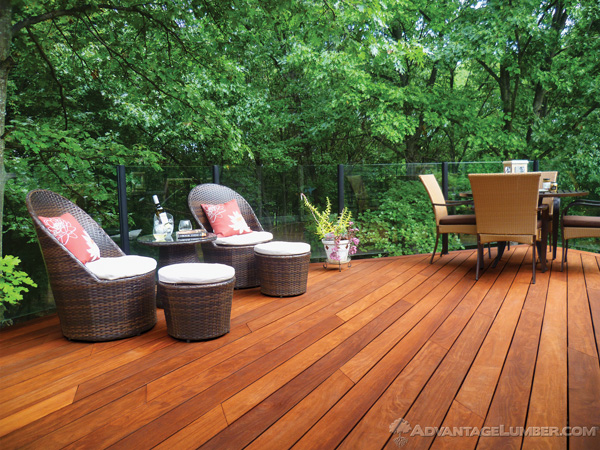
This is our 3rd most popular option for an exterior hardwood that is great for outdoor kitchens.
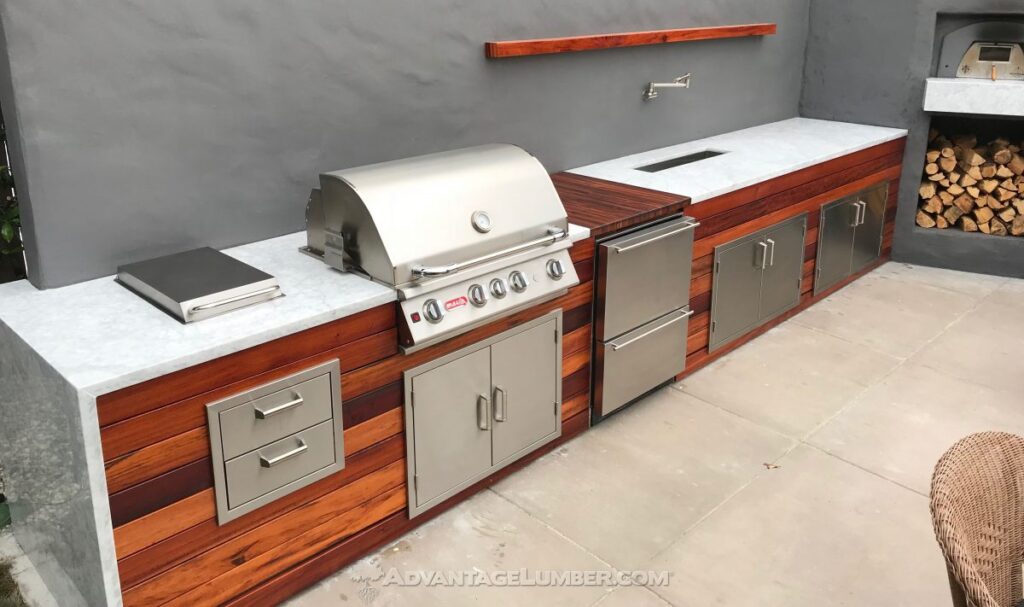
These 3 wood species are the best woods that we recommend for outdoor kitchens.
When building an outdoor kitchen with wood you can often use short length boards depending on your design of course.

